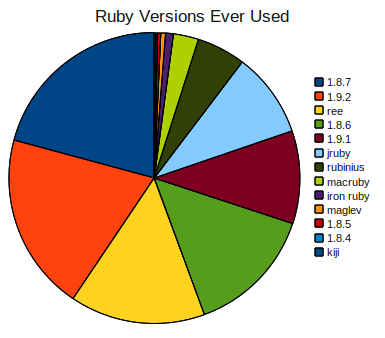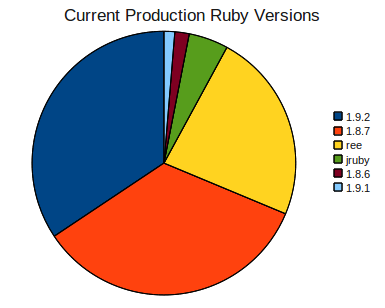At the May 2011 Indy.rb meetup, I suggested creating a survey to figure out what versions of Ruby people were using, and what testing stacks they use and would like to use. I created this survey and tweeted it out, and was impressed with the results! Over a hundred people filled out the information, from several continents and numerous countries. Thanks to everyone who participated!
The questions and their results
- What versions of Ruby have you ever tried out?
- What versions of Ruby do you currently use in production or for real apps?
- What testing frameworks are your active projects using?
- If you were starting a new Rails project right now, what testing frameworks would you use?
- What mocking/stubbing frameworks are your active projects using?
- If you were starting a new Rails project right now, what mocking/stubbing frameworks would you use?
- What do your active projects use to populate testing data?
- If you were starting a new Rails project right now, what would you use for populating testing data?
What versions of Ruby have you ever tried out?

Summary: a wide variety of Ruby versions used. What the heck is kiji, you might ask? This was a useful post on kiji.
What versions of Ruby do you currently use in production or for real apps?
